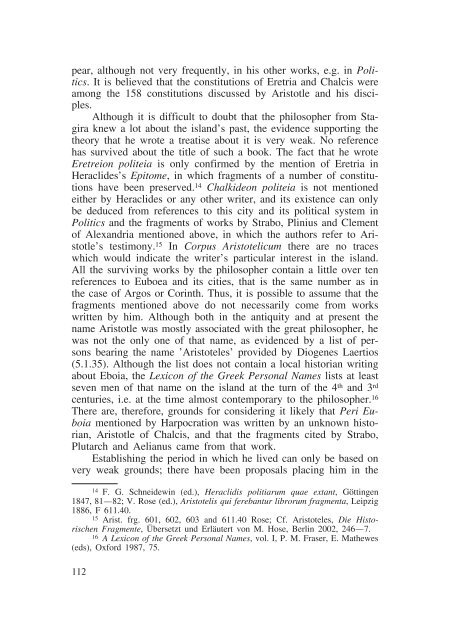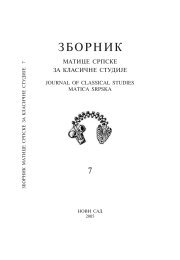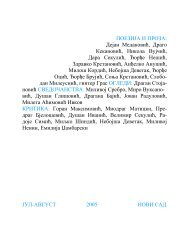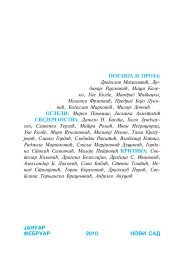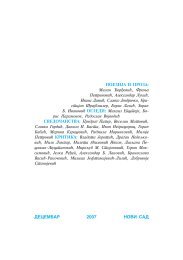Create successful ePaper yourself
Turn your PDF publications into a flip-book with our unique Google optimized e-Paper software.
pear, although not very frequently, in his other works, e.g. in Politics.<br />
It is believed that the constitutions of Eretria and Chalcis were<br />
among the 158 constitutions discussed by Aristotle and his disciples.<br />
Although it is difficult to doubt that the philosopher from Stagira<br />
knew a lot about the island's past, the evidence supporting the<br />
theory that he wrote a treatise about it is very weak. No reference<br />
has survived about the title of such a book. The fact that he wrote<br />
Eretreion politeia is only confirmed by the mention of Eretria in<br />
Heraclides's Epitome, in which fragments of a number of constitutions<br />
have been preserved. 14 Chalkideon politeia is not mentioned<br />
either by Heraclides or any other writer, and its existence can only<br />
be deduced from references to this city and its political system in<br />
Politics and the fragments of works by Strabo, Plinius and Clement<br />
of Alexandria mentioned above, in which the authors refer to Aristotle's<br />
testimony. 15 In Corpus Aristotelicum there are no traces<br />
which would indicate the writer's particular interest in the island.<br />
All the surviving works by the philosopher contain a little over ten<br />
references to Euboea and its cities, that is the same number as in<br />
the case of Argos or Corinth. Thus, it is possible to assume that the<br />
fragments mentioned above do not necessarily come from works<br />
written by him. Although both in the antiquity and at present the<br />
name Aristotle was mostly associated with the great philosopher, he<br />
was not the only one of that name, as evidenced by a list of persons<br />
bearing the name 'Aristoteles' provided by Diogenes Laertios<br />
(5.1.35). Although the list does not contain a local historian writing<br />
about Eboia, the Lexicon of the Greek Personal Names lists at least<br />
seven men of that name on the island at the turn of the 4 th and 3 rd<br />
centuries, i.e. at the time almost contemporary to the philosopher. 16<br />
There are, therefore, grounds for considering it likely that Peri Euboia<br />
mentioned by Harpocration was written by an unknown historian,<br />
Aristotle of Chalcis, and that the fragments cited by Strabo,<br />
Plutarch and Aelianus came from that work.<br />
Establishing the period in which he lived can only be based on<br />
very weak grounds; there have been proposals placing him in the<br />
14 F. G. Schneidewin (ed.), Heraclidis politiarum quae extant, Göttingen<br />
1847, 81—82; V. Rose (ed.), Aristotelis qui ferebantur librorum fragmenta, Leipzig<br />
1886, F 611.40.<br />
15 Arist. frg. 601, 602, 603 and 611.40 Rose; Cf. Aristoteles, Die Historischen<br />
Fragmente, Übersetzt und Erläutert von M. Hose, Berlin 2002, 246—7.<br />
16 A Lexicon of the Greek Personal Names, vol. I, P. M. Fraser, E. Mathewes<br />
(eds), Oxford 1987, 75.<br />
112


